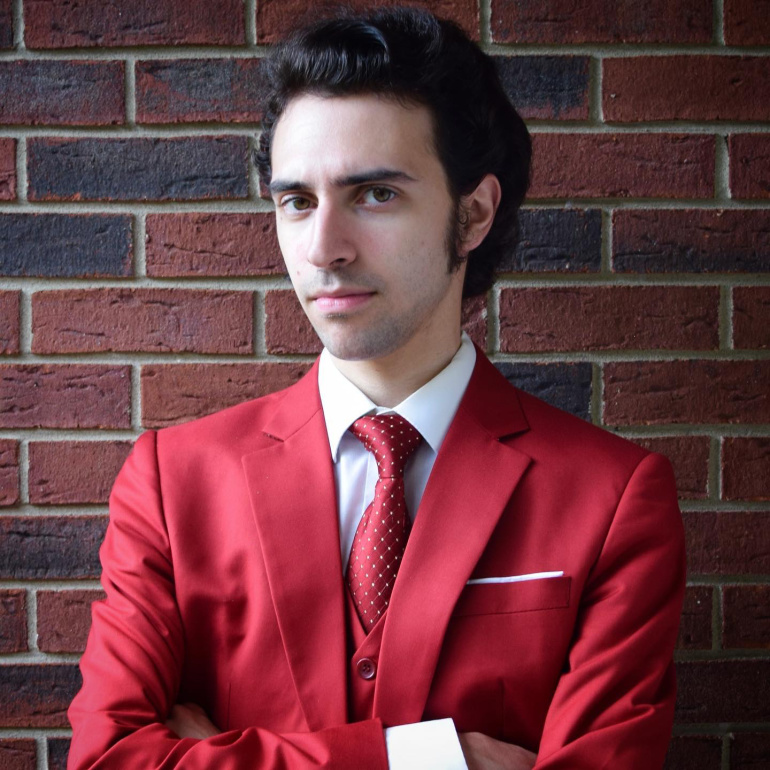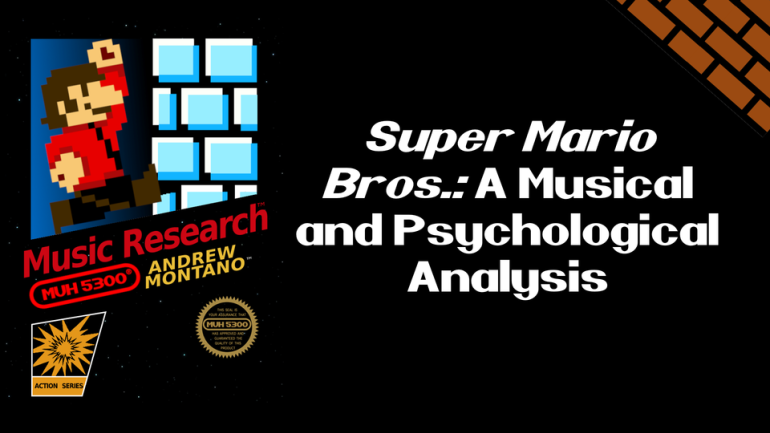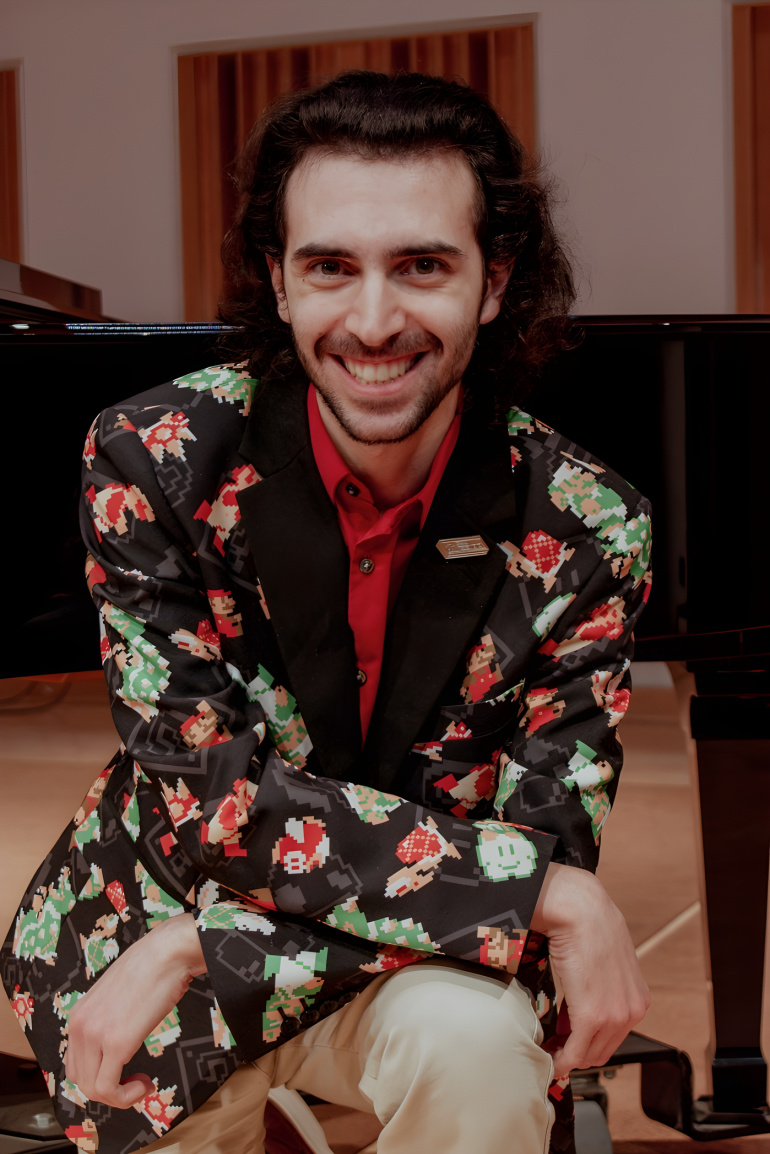
Super Mario Bros. is one of the most popular video game franchises of all time. It revolutionized the gaming world in the 1980s and the most recent movie adaptation — which released on April 5 — was a box office hit.
The world of Mario makes people feel a variety of emotions, but Wayne State graduate student Andrew Montano wanted to specifically study the impact of its music.
Using music from the 1985 version of Super Mario Bros. for the Nintendo Entertainment System, Montano created his presentation, “Super Mario Bros.: A musical and psychological analysis,” which recently won first place at the Wayne State Graduate Research Symposium.
“I’ve always been a Super Mario fan,” Montano said. “The whole reason I did this topic was I didn’t want to do anything that I wouldn’t enjoy. I want to have fun while I’m doing research, and not have it feel like a chore. So, I thought, ‘How do I make this exciting, but also educational?’ I thought, ‘What about Super Mario?’ I decided to research Super Mario and see what happened. It ended up being one of the most exciting and eye-opening experiences.”
Montano examined the compositional style and construction of the soundtrack of Super Mario Bros., connecting musical details with theories in psychology to explain the emotional impact the music has on players.
“The talk was eye-opening for a lot of people because it’s like, ‘Oh, there’s actual science and music theory behind this,’” Montano said. “It’s not just the visuals that make the game; it’s also the audio. A lot of people don’t realize audio can have just as much of an impact as the visuals. The video game scores can trigger certain emotions.
 “When you first start the game, the music is very bouncy and light-hearted, which compliments Mario’s movements as he’s jumping and dashing around. The other example I gave is what’s called the ‘hurry-up sequence,’ where, essentially, you’re playing a level, the time strikes 100 seconds and it plays a little sequence. What that indicates to the player is that something different is going on; you have 100 seconds left to beat the level or Mario is going to die.”
“When you first start the game, the music is very bouncy and light-hearted, which compliments Mario’s movements as he’s jumping and dashing around. The other example I gave is what’s called the ‘hurry-up sequence,’ where, essentially, you’re playing a level, the time strikes 100 seconds and it plays a little sequence. What that indicates to the player is that something different is going on; you have 100 seconds left to beat the level or Mario is going to die.”
Montano said the tempo change brings out a sense of urgency in players.
“It went from 100 beats per minute to 150 beats per minute, which, based off the studies I did, anything that’s a lot higher tempo will bring what was once positive arousal and positive valence to positive arousal and negative valence. Now you’re no longer in that happy state,” Montano said. “The composer, Koji Kondo, was a genius. There’s so much in the game — I wasn’t able to get to it all in my seven-minute presentation — there’s themes for Bowser’s castle, the underground and the underwater worlds.”

Montano is currently working on his master of arts in music with a focus on vocal performance in the College of Fine, Performing and Communication Arts. He earned a bachelor of arts in music with a focus on vocal performance from Wayne State's Department of Music in 2022.
Montano didn’t plan to pursue a master’s until he was encouraged to do so by Assistant Professor Jonathan Lasch, who teaches voice in the Department of Music.
“Originally, I was like, ‘I’m all set, I’m finally out of college,’” Montano said. “’Maybe after a year or something, I might consider graduate school.’ Then my mentor and primary voice coach, Jonathan Lasch, told me he thought I would be a really good candidate for the graduate program. He gave me a lot of the materials over the summer, and I saw it was a two-year program, not four years like undergrad, so I was in. The amount of opportunities I’ve received so far is just insane.”
Montano competed in a concerto competition and won the opportunity to sing with the university orchestra. He also went to the National Association of Teachers of Singing (NATS) quarterfinals competition in Indiana and won first place in his category.
“I’m getting more exposure than I thought I would. It's a good feeling because I worked so hard as an undergrad and now I’m finally being recognized for what I’m capable of,” Montano said. “I’m making connections and other people are making recommendations, ‘You need a vocalist? Well, he just graduated and is in the grad program, maybe reach out to him.’ It’s really eye opening. I was hesitant to start the grad program at first because I felt like I might be repeating some of the same stuff. But then all these different events in one semester alone, so it made me very glad I went with this choice.”
Montano is wrapping the second of his four semesters in the master’s program and said he’s excited about the possibilities awaiting after graduation.
“I would probably enjoy having a private studio where I can not only showcase what I’ve learned in college, but also help people who may not have had the financial ability to attend college,” Montano said. “Help incoming artists and see what they’ve been working on and how we might be able to improve it. I’d also like to showcase myself beyond Michigan, maybe all over the country or even the world. That would be a lot of fun.
“Something outside of music that I've always wanted to try and experiment with is voice acting. A lot of the elements in music also go into voice acting, where you’re trying to convey emotions and you’re trying to portray a character. I’ve always been intrigued by that. Starting a studio, showcasing myself and voice acting, those are probably my top three goals.”
